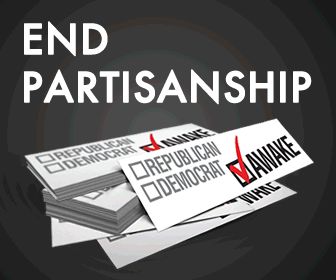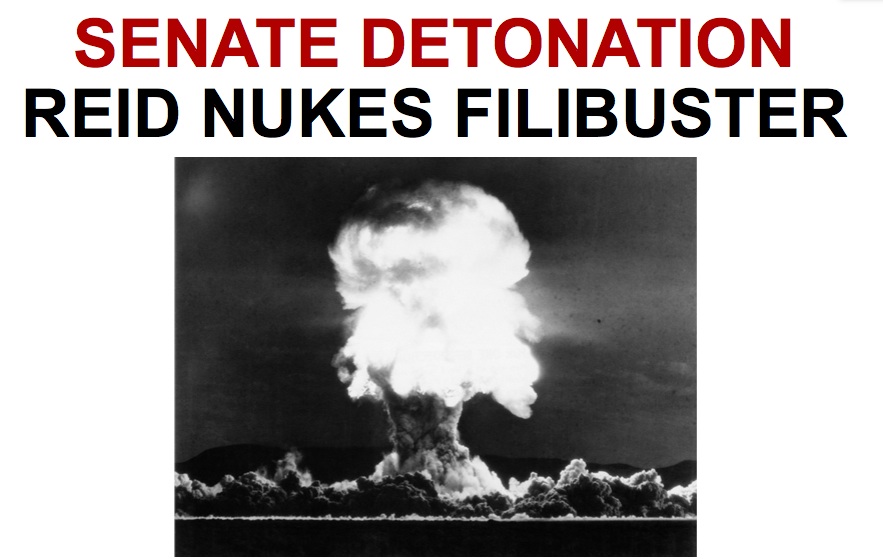Senate's 'Nuclear' Option Radiates Sensational Journalism


The vote does not come without cause. There have been more filibusters in Congress between 2009 and 2010 than there were in the three decades following WWII combined. The Senate filibuster has been the subject of reform efforts for several years. Just last year a similar discussion was taking place, but was stymied when a proposal brought by Senator Jeff Merkley to create a 'talking filibuster' failed to gain traction with Republicans in the legislature.
On the floor of the Senate, Senator Chuck Grassley (R-Iowa), called today's vote a "power grab" and vowed, "there will come a day when the rules are reversed."
One of the three Democrats who abstained, Carl Levin from Michigan, said, "Today, we are once again moving down a destructive path."
Consequently, the media's reaction has been to capitalize on the unprecedented vote with hyperbolic headlines, sidestepping the important discussion on what should be done to reform the filibuster into an apocalyptic doomsday story.
Credit: Huffington Post
The Huffington Post went so far as to post a picture of a nuclear bomb exploding with a headline 'Senate Detonation: Reid Nukes Filibuster.' Breitbart went with 'Nuclear: Reid, Democrats Destroy Filibuster, 52-48' also with a picture of a nuclear explosion.
Much like the government shutdown, blame for the rules change will fall on partisan lines. Senate Democrats are arguing that the Senate Republicans brought the change on themselves for failing to "keep his word" as Senator Reid said. Conversely, the opposing side has argued that Senate Democrats are not respecting the minority's right to obstruct as guaranteed by law.
Although the vote should theoretically reduce the paralyzed state of the Legislative Branch, it is likely to have unintended consequences that will bleed over into other issues that confront Congress. At a time when the body is facing a 9 percent approval rating, another controversial vote on partisan lines can only serve to weaken the nation's quickly deteriorating confidence in Congress. Senator Mark Pryor (D-Arkansas) who also abstained in the vote, argued a similar point, "There's plenty of blame to go around... If one person blames the other side entirely, they're not being truthful."
Photo credit: Talking Points Memo



